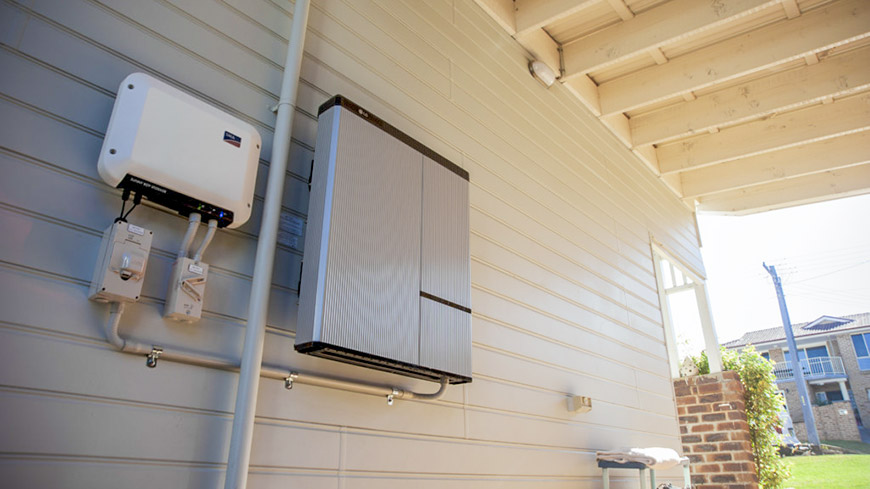
ACT households will have continued opportunities to install subsidised energy storage systems, as the ACT government extends a household battery grant program that has been nominated for an award by the Climate Council’s Cities Power Partnership initiative.
The ACT Government has announced a new round of grants to four companies; ActewAGL, Evergen, Solahart and Solarhub, to deliver the next stage of the roll-out of the Next Generation Energy Storage program.
Under the program, households that have a battery system installed by one of the four providers will have the battery subsidised at a rate of $825 per kW, up to a maximum of 30kW. The average battery system will attract a total subsidy in the order of $4,000, making the installation of a battery system substantially more attractive for households.
To be eligible to receive the grants, households must be installing a new battery system that is both grid connected and coupled with a solar power system.
The providers are offering a range of battery makes and models, including those from LG, Tesla, and SolaX.
The ACT Government estimates that the average system installation cost for battery storage alone (i.e. being coupled with an existing solar installation), would be around $8,000 to $10,000 and would increase to a range of $13,000 to $18,000 when combined with solar panels.
To date, the storage initiative has delivered more than 1,200 residential battery installation, achieving a combined capacity of 5MW. The ACT’s goal is to support the installation of up to 5,000 battery storage systems, providing a combined output of 36MW.
The ACT minister for climate change, Shane Rattenbury, announced the newest round of funding shortly after the Next Generation Energy Storage program was nominated by the Climate Council’s Cities Power Partnership program for its achievements in supporting renewable energy.
“Local champions such as the ACT are stepping up to the climate challenge in the face of continuing Federal climate inaction. It’s time to celebrate these unsung climate heroes in local government, who are helping their communities to drive down local greenhouse gas pollution,” director of the Cities Power Partnership David Craven said.
“The ACT are proud climate leaders. We’re putting the climate first and realising real climate action, here and now, to protect our planet for future generations,” Rattenbury added.
“In Canberra we now have over 5 megawatts of “smart” battery storage supported under the program. This equates to just over 1,200 batteries sold across the ACT which can be used to support the electricity grid and help reduce Canberra’s vulnerability to peak energy demand shocks.”
The ACT will soon be sourcing 100% of its electricity from renewable sources, under the territory’s ambitious net-zero emissions targets. The ACT Government has also sought to support the adoption of battery storage systems which may also be coordinated through the roll-out of a virtual power plant.
“The installation of battery-storage in homes across the Territory will form an important part of the transition towards 100 per cent renewable electricity by 2020 and net zero emissions by 2045 at the latest,” Rattenbury added.
“The battery storage roll-out is also building Canberra’s reputation as a globally-recognised hub for battery storage innovation. Detailed data is being collected from all batteries installed under the program which will inform further research and industry development.”
The roll-out of VPP connected batteries has supported the development of local technology companies, including Reposit Power, who has emerged as a leading provider of VPP services.
Partly in recognition of the achievements of the ACT’s ambitious climate change and renewable energy policies, previous ACT energy minister Simon Corbell was recognised for an outstanding contribution to the clean energy sector at the 2019 Clean Energy Summit.


